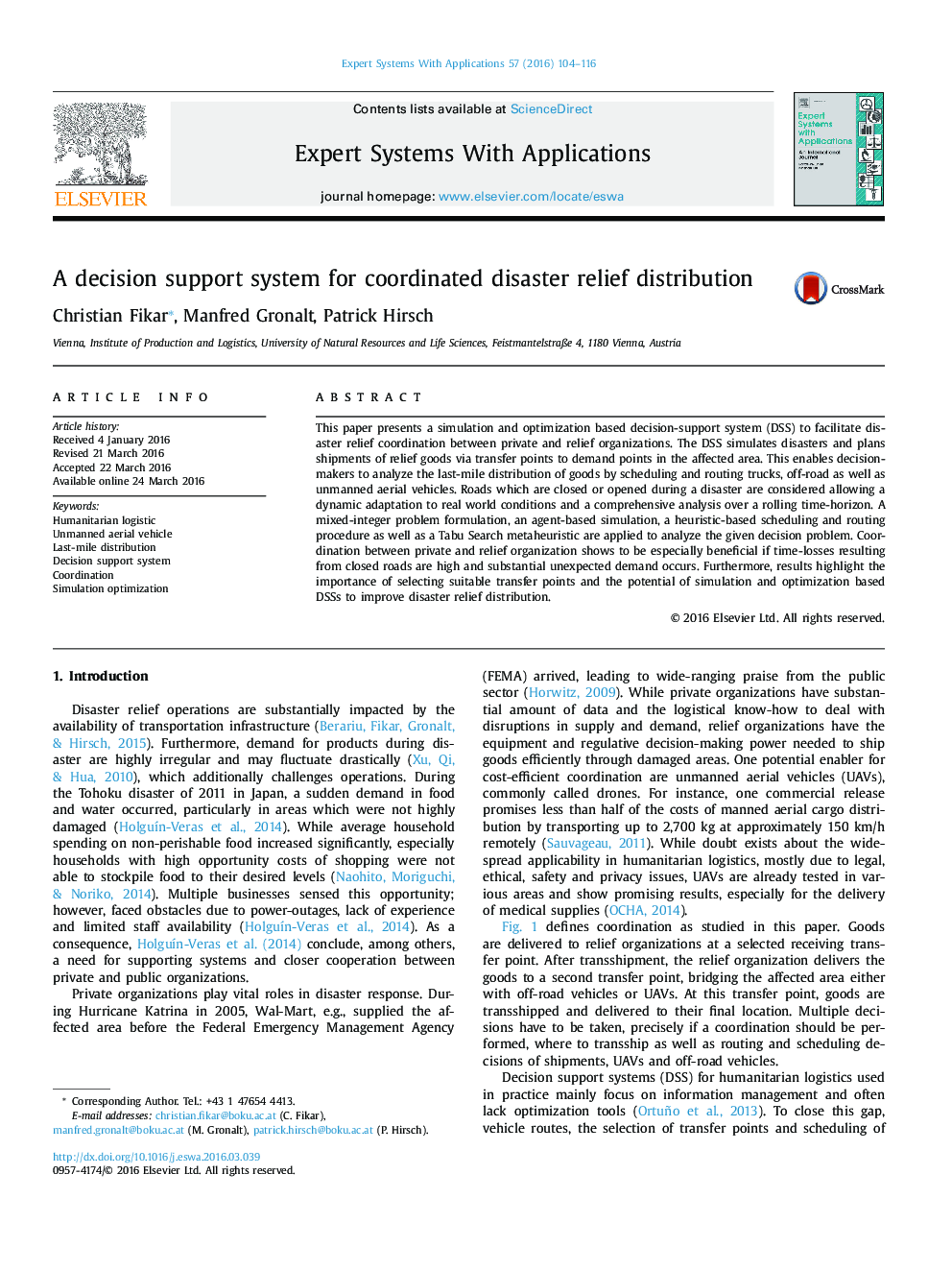| Article ID | Journal | Published Year | Pages | File Type |
|---|---|---|---|---|
| 381966 | Expert Systems with Applications | 2016 | 13 Pages |
•This paper introduces a DSS to support coordination in disaster relief distribution.•An MIP and an agent-based simulation with optimization procedures are presented.•Road closures and off-road as well as unmanned aerial vehicles are considered.•Computational experiments are based on flood scenarios of two Austrian regions.•Results highlight potentials of coordinated disaster relief distribution.
This paper presents a simulation and optimization based decision-support system (DSS) to facilitate disaster relief coordination between private and relief organizations. The DSS simulates disasters and plans shipments of relief goods via transfer points to demand points in the affected area. This enables decision-makers to analyze the last-mile distribution of goods by scheduling and routing trucks, off-road as well as unmanned aerial vehicles. Roads which are closed or opened during a disaster are considered allowing a dynamic adaptation to real world conditions and a comprehensive analysis over a rolling time-horizon. A mixed-integer problem formulation, an agent-based simulation, a heuristic-based scheduling and routing procedure as well as a Tabu Search metaheuristic are applied to analyze the given decision problem. Coordination between private and relief organization shows to be especially beneficial if time-losses resulting from closed roads are high and substantial unexpected demand occurs. Furthermore, results highlight the importance of selecting suitable transfer points and the potential of simulation and optimization based DSSs to improve disaster relief distribution.
